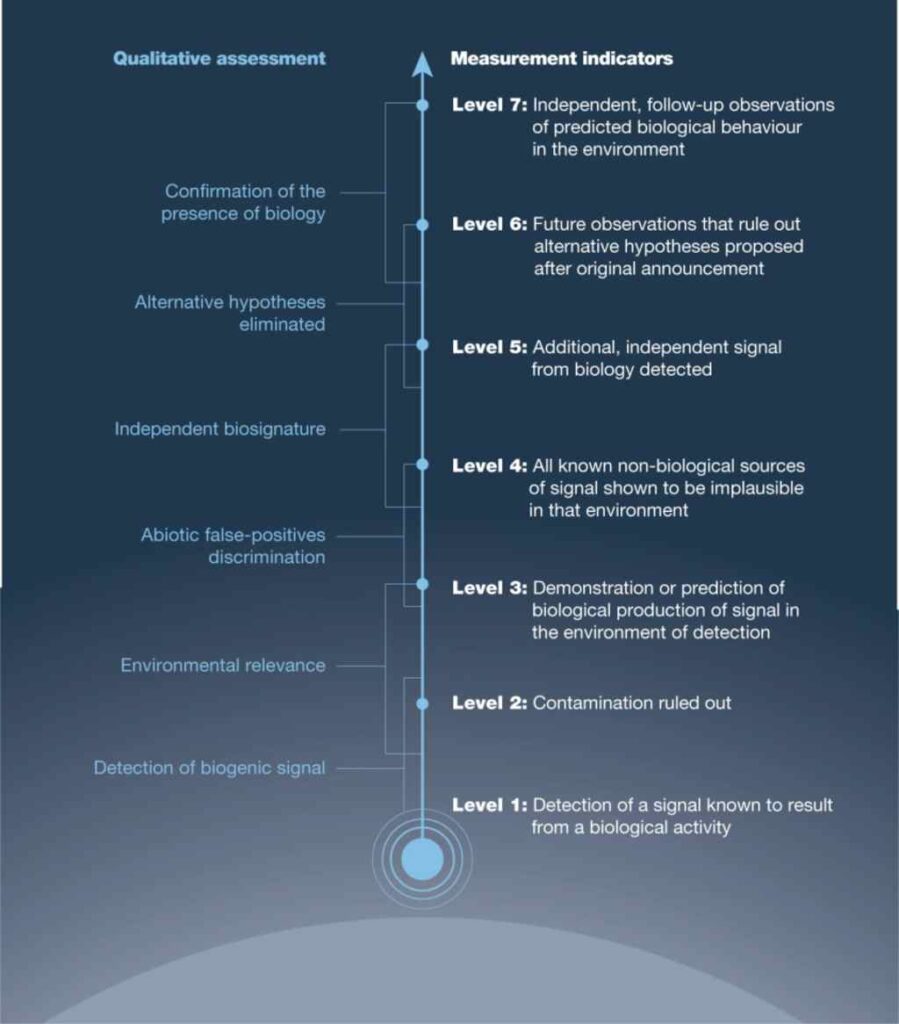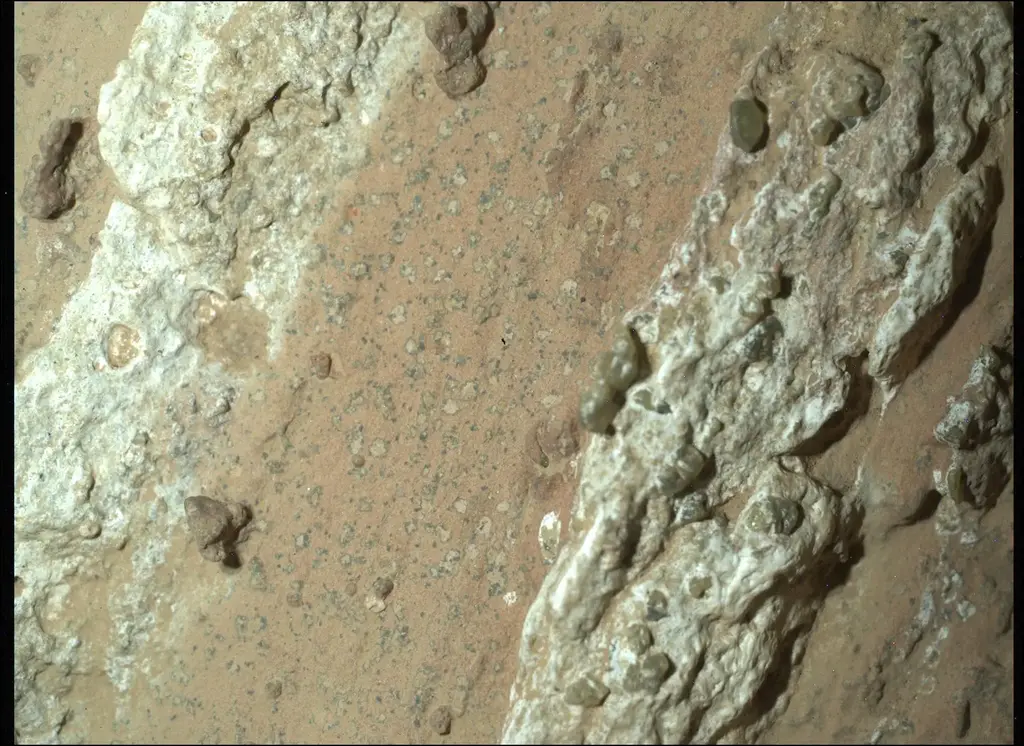NASA scientists announced that a rock sample collected by the Perseverance rover on Mars shows potential signs of ancient microbial life. The sample, named “Sapphire Canyon,” was drilled from an arrowhead-shaped rock called “Cheyava Falls” in July 2024.
The discovery centers on unusual “leopard spots” – distinctive dark markings with rings found in the rock. Scientists believe these spots contain iron phosphate (likely vivianite) and iron sulfide (likely greigite) minerals alongside organic carbon signals. On Earth, these minerals often form through microbial activity.

“This very well could be the clearest sign of life that we’ve ever found on Mars, which is incredibly exciting,” said Acting NASA Administrator Sean Duffy. The findings were published in the peer-reviewed journal Nature on September 10, 2025.
The rock sample came from the “Bright Angel” formation along the edges of Neretva Vallis, an ancient river valley about 400 meters wide. This area was once filled with flowing water that emptied into Jezero Crater more than 3 billion years ago.
Similar Posts
“These really ancient rocks provide us a window into a period of time that’s not particularly well represented on our own planet Earth,” explained Katie Stack Morgan, Perseverance project scientist. “But it’s a time when life was emergent on Earth, and could have been on Mars as well.”
The rover used multiple instruments to analyze the rock, including PIXL (Planetary Instrument for X-ray Lithochemistry) and SHERLOC (Scanning Habitable Environments with Raman & Luminescence for Organics & Chemicals). These tools detected organic compounds alongside the mineral formations.
Joel Hurowitz, lead author of the study from Stony Brook University, explained: “The combination of chemical compounds we found in the Bright Angel formation could have been a rich source of energy for microbial metabolisms.”
However, scientists emphasize this is a “potential biosignature” – not definitive proof of life. The minerals could possibly form through non-biological processes, though researchers say such explanations are less likely given the evidence.
To determine whether these features truly represent ancient Martian life, the samples would need to be returned to Earth for detailed analysis. Perseverance has collected 27 rock samples so far, but plans for returning them face budget challenges.
The discovery represents an important milestone in space exploration and brings humanity one step closer to answering one of its most profound questions: Are we alone in the universe?


















